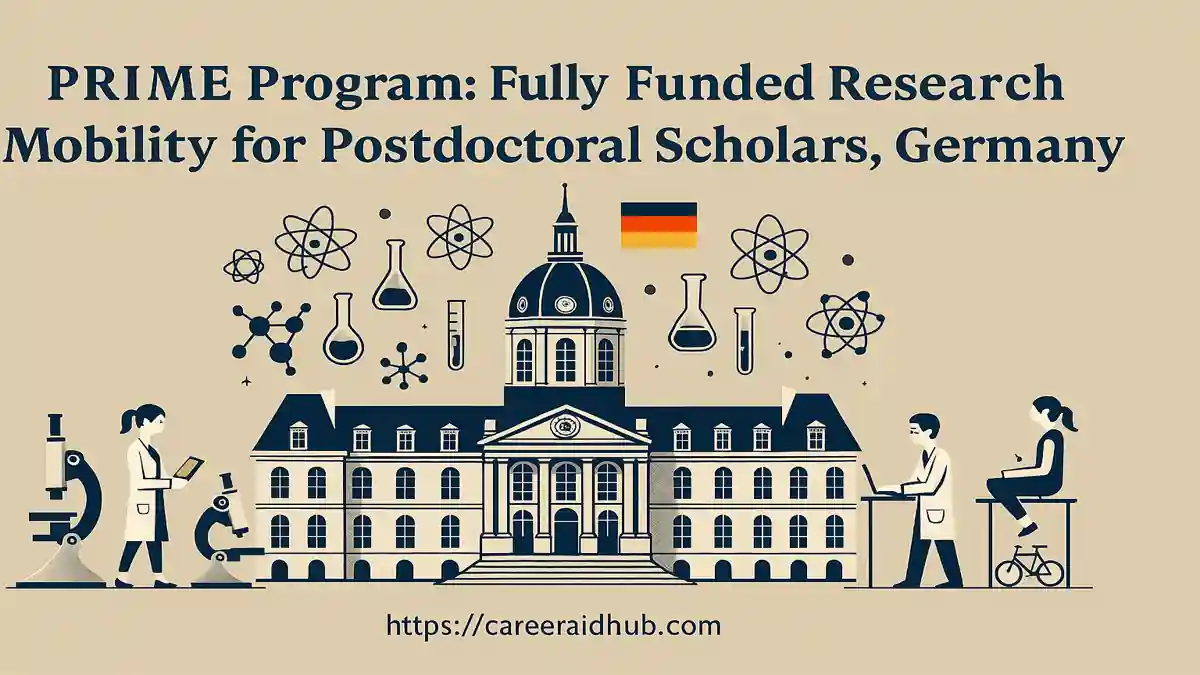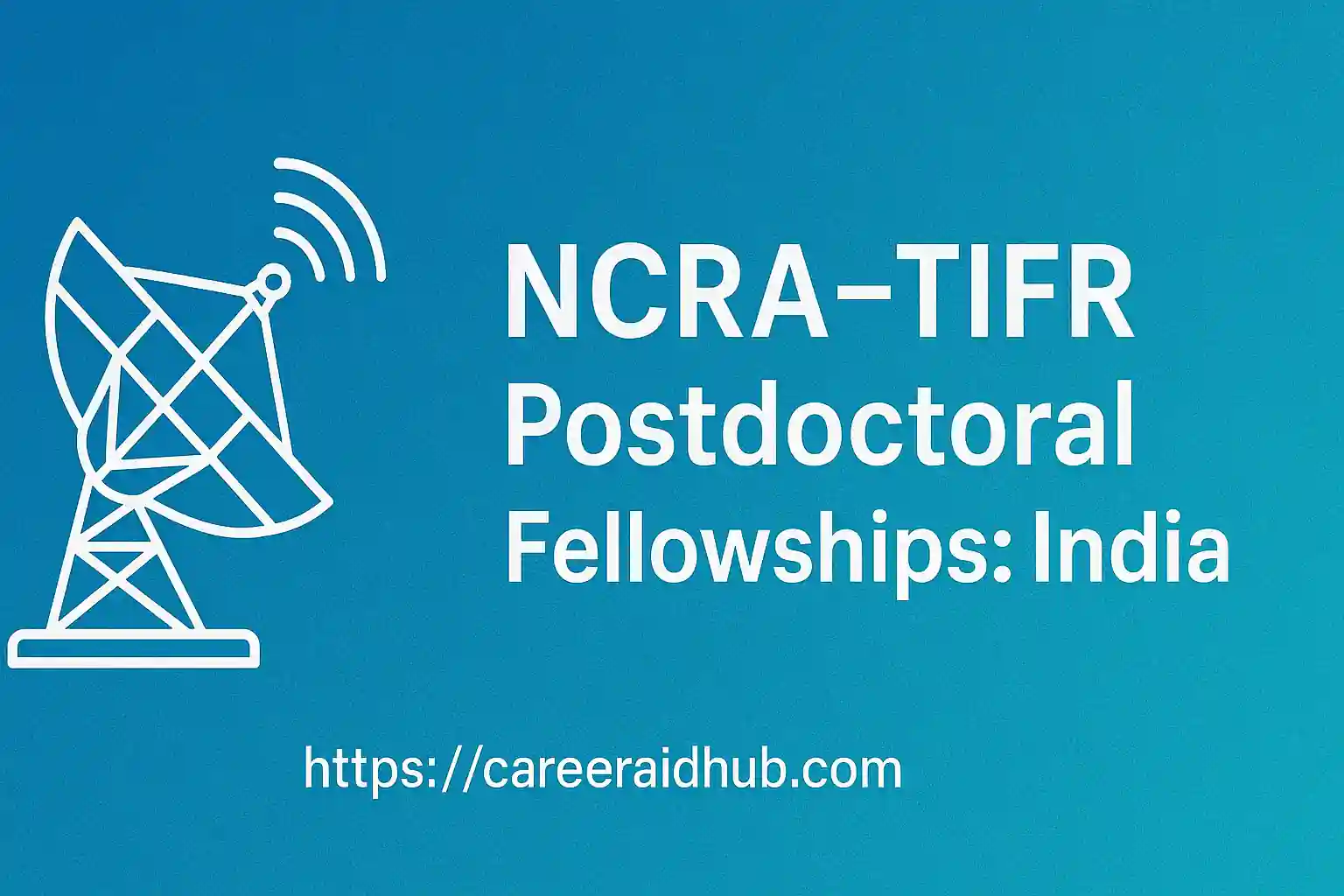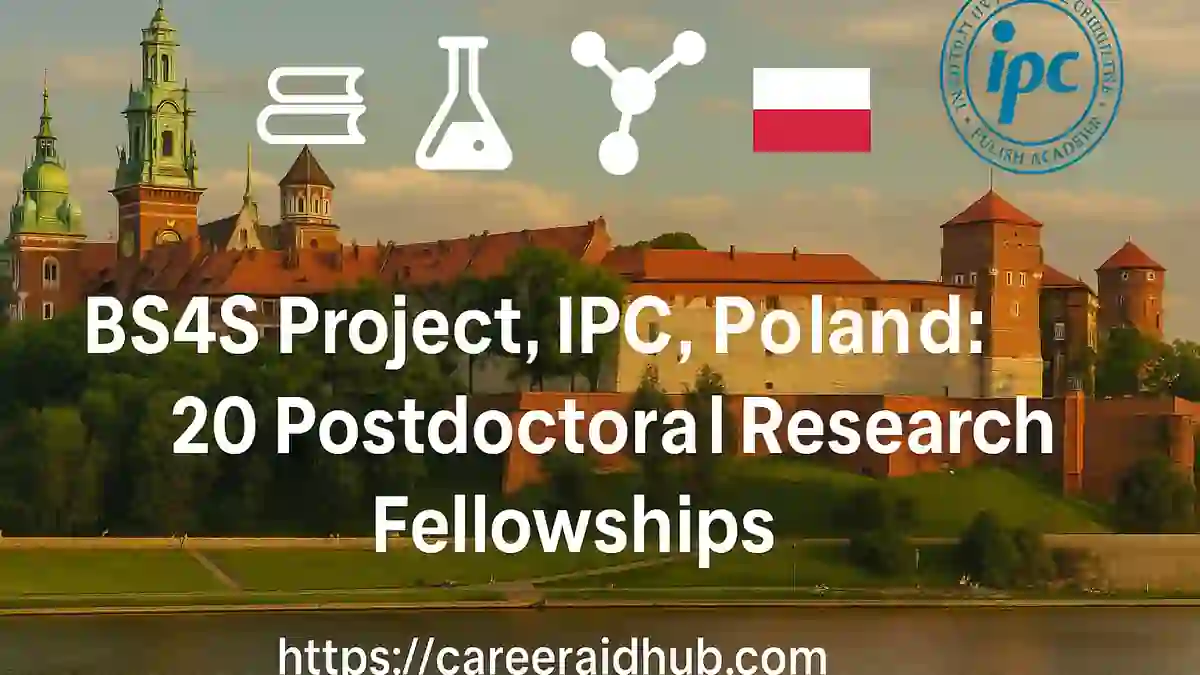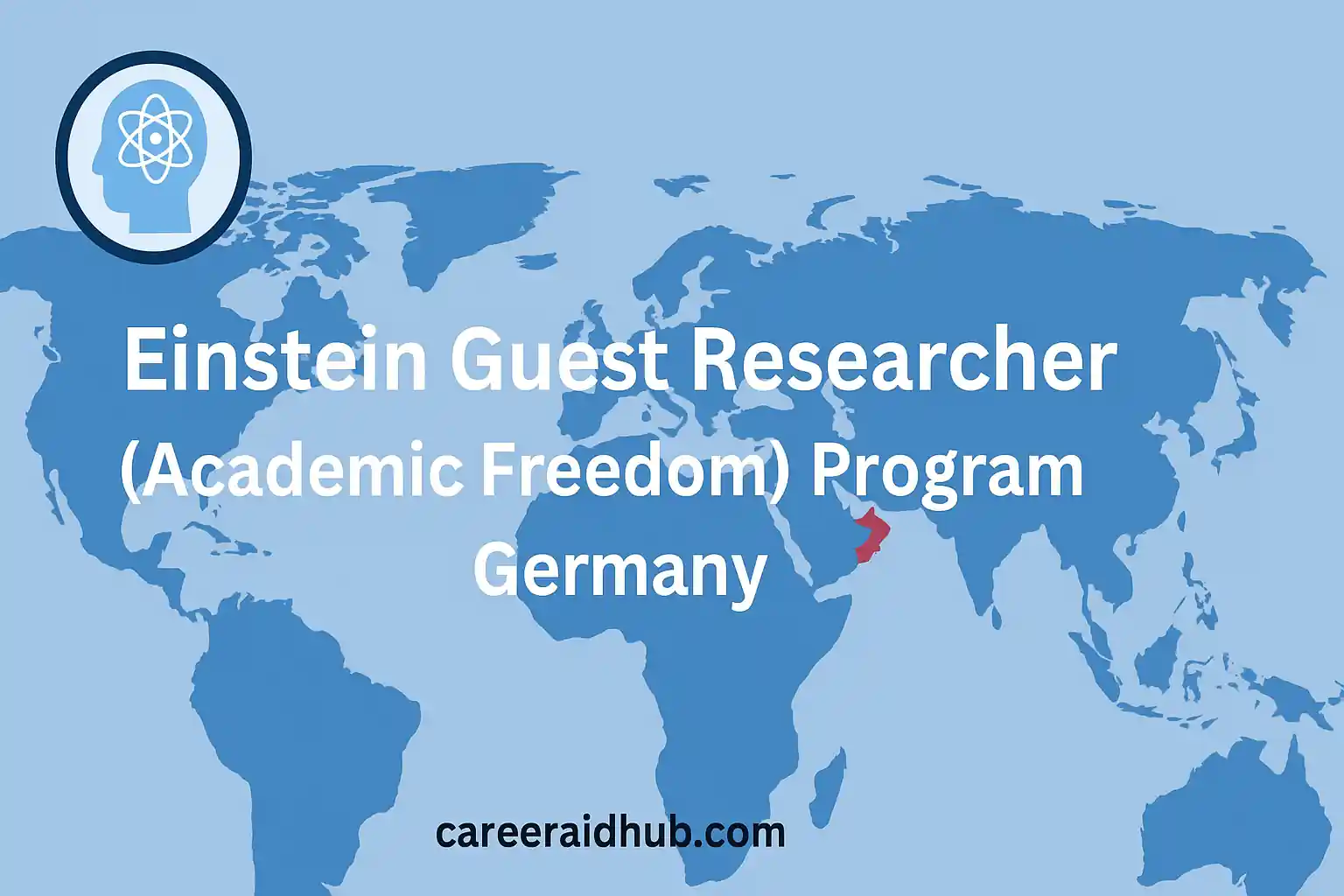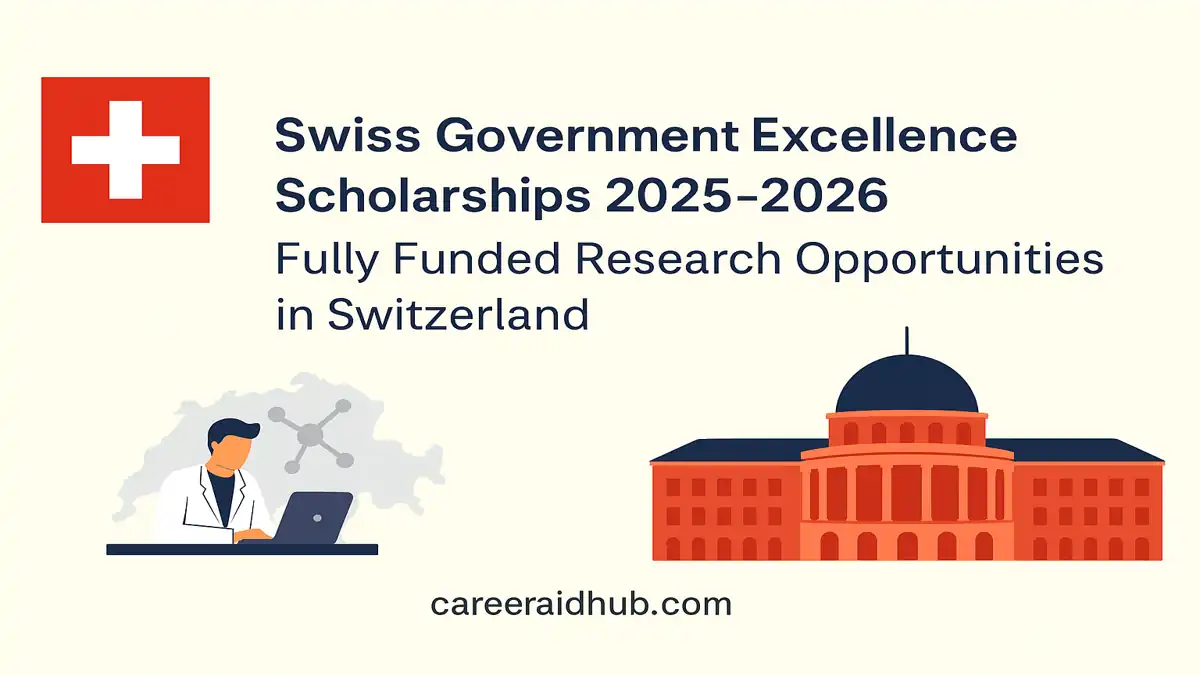Understanding DAAD PRIME: Structure and Goals
The DAAD PRIME (Postdoctoral Researchers International Mobility Experience) program is a flagship initiative of the German Academic Exchange Service (DAAD), designed to promote international mobility among early-career researchers. This program is funded by the Federal Ministry of Education and Research (BMBF) and provides a structured path for postdoctoral researchers to undertake high-impact research abroad while maintaining institutional ties in Germany. Additionally, unlike conventional fellowships, PRIME awards are granted in the form of full-time employment contracts with German universities. These contracts ensure comprehensive benefits such as social security, health insurance, and parental leave rights.
DAAD PRIME 2025 offers postdoctoral researchers the opportunity to conduct international research while holding a salaried position at a German university. With a unique structure combining global collaboration and national reintegration, this program supports all disciplines and nationalities, making it a top-tier funding path for emerging academic leaders.
Program Structure
Phase 1: A 12-month research stay at a host institution outside Germany.
Phase 2: A 6-month reintegration period at the German host institution.
This format not only fosters international collaboration but also prepares scholars for long-term academic roles within Germany.
Key Features of the DAAD PRIME Fellowship
| Feature | Description |
|---|---|
| Program Duration | 18 months (12 months abroad + 6 months in Germany) |
| Type of Appointment | Full-time employment (TV-L E13 or E14 scale) |
| Eligible Applicants | Postdoctoral researchers from all nationalities and disciplines |
| Host Requirement | Employment contract with a German university |
| Funding Body | German Federal Ministry of Education and Research (BMBF) |
| Application Format | Online application through DAAD portal |
The emphasis on full employment, rather than a scholarship model, offers added security and professional recognition to researchers throughout the duration of the fellowship.
Eligibility Requirements
Applicants must fulfill the following conditions to qualify for DAAD PRIME:
PhD Requirement: Applicants must have successfully completed their doctoral degree prior to the deadline.
Academic Merit: A strong publication record and a demonstrated ability to undertake independent research are expected.
Mobility Clause: Furthermore, Applicants must not have resided or worked in the host country abroad for more than 12 months during the three years preceding the application deadline.
German Host Commitment: A German university must formally agree to employ the candidate for the full 18-month duration.
International Host Agreement: A host institution outside Germany
must commit to the 12-month research stay through a formal agreement.
Note: Candidates returning from long-term international assignments should assess their compliance with the mobility rule to avoid disqualification.
Fellowship Funding and Benefits
DAAD PRIME fellowships are designed to be financially sustainable and professionally rewarding.
What the Fellowship Covers:
Salary: Based on the TV-L E13/E14 public sector pay scale in Germany.
Research Abroad: Reimbursement of expenses incurred during the international research phase.
Travel Expenses: Coverage for both the researcher and eligible dependents.
Family Support: Financial assistance for family members accompanying the researcher.
Health and Social Security: Full insurance coverage under the German system.
The host university in Germany administers the salary and insurance while DAAD provides a lump-sum grant to cover all related expenses.
Step-by-Step Application Process
Step 1: Project Planning
Begin by identifying your host institutions both abroad and in Germany. Moreover, Establish academic contacts and discuss your research proposal to secure formal collaboration commitments.
Step 2: Document Preparation
Prepare
Structured research proposal (maximum 10 pages, DAAD format)
Curriculum Vitae with full academic record
Doctoral degree certificate
Confirmation letters from both host institutions
Timeline and work plan for both research phases
List of publications
Optional supporting documents: recommendation letters, prior collaborations, or language proficiency certificates
Step 3: Submission
All applications must be submitted through the DAAD online portal.
Only complete applications will be considered; late or partial submissions are automatically disqualified.
Key Dates for the 2025–2026 Cycle
| Stage | Expected Timeline |
|---|---|
| Call Opens | March or April 2025 |
| Application Deadline | May or June 2025 (we will update soon) |
| Selection Interviews | October 2025 |
| Fellowship Start Date | From January 2026 |
Selection Criteria
Applications are reviewed by a panel of academic experts. Evaluation is based on:
Scientific quality and innovation of the research proposal
Feasibility and structure of the
proposed timelineStrength and alignment of host institutions
Candidate’s international academic experience
Alignment with reintegration and long-term academic goals in Germany
Shortlisted applicants may be invited for an online or in-person interview.
Enhancing Your Application: Tips for Success
To maximize your chances of success:
Design a proposal that demonstrates international relevance and academic impact.
Highlight leadership roles and evidence of previous international collaboration.
Partner with established research institutions.
Clearly articulate how the program aligns with your long-term academic career in Germany.
Follow DAAD formatting and content guidelines rigorously.
Conclusion and Takeaway
The DAAD PRIME program is a premier opportunity for postdoctoral scholars to gain international research exposure while securing full employment in Germany. It serves as a stepping-stone for researchers aiming to establish a long-term academic career and integrate into the German research ecosystem.
By offering a dual-phase structure, robust funding, and strong institutional partnerships, PRIME creates a globally oriented pathway for postdoctoral excellence.
For support with proposal writing, CV enhancement, or host institution matching, consider exploring our premium services at CareerAidHub. We provide end-to-end assistance tailored to competitive research programs like DAAD PRIME and many more.
Feature Summary
| Feature | Details |
|---|---|
| Program Name | DAAD PRIME (Postdoctoral Researchers International Mobility Experience) |
| Host Country | Germany + Research Stay Abroad |
| Funded By | German Federal Ministry of Education and Research (BMBF) |
| Duration | 18 Months |
| Study Mode | Full-time (Onsite) |
| Eligibility | International Postdoctoral Researchers |
| Financial Support | Salary, Travel, Insurance, Family Allowances |
| Fields of Study | All Disciplines |
| Deadline | 29 August 2025 |
| Official Website | Click Here |
Frequently Asked Questions (FAQs)
The DAAD PRIME fellowship funds postdoctoral researchers to conduct 12 months of research abroad followed by a 6-month reintegration phase at a German university.
Postdoctoral researchers from any country and discipline can apply, provided they have completed their PhD and meet mobility and host institution requirements.
The total fellowship duration is 18 months, including 12 months abroad and 6 months at a German host university.
DAAD PRIME offers a full employment contract with a German university, not a stipend. Salary is based on the public sector pay scale (TV-L E13/E14).
The fellowship covers salary, travel costs, family allowances, and social security, offering full financial and professional support throughout the research period.
Applicants must not have lived or worked in the chosen host country abroad for more than 12 months in the past 3 years before applying.
The application typically opens in March or April and closes around May or June. Exact dates are announced on the official DAAD website.
Yes, you can choose any non-German country, as long as the host institution abroad agrees to support your research for 12 months.
Yes, you must secure formal agreements from both a German university for employment and a foreign institution for the research stay abroad.
The program is highly competitive. Selection is based on research excellence, host institution quality, international experience, and long-term academic potential.

